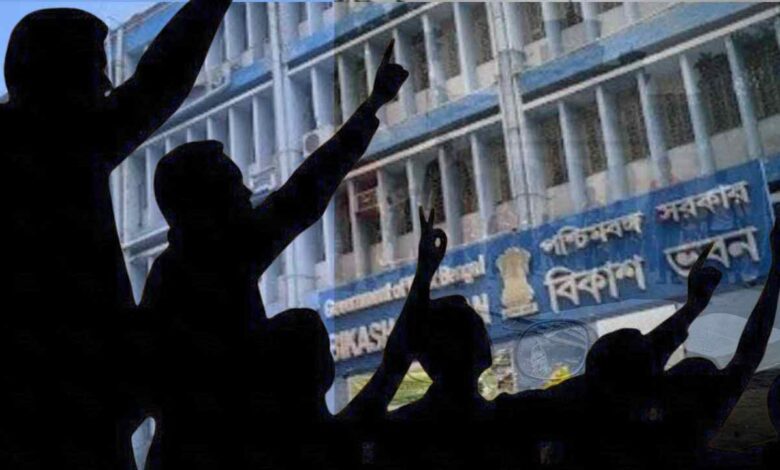SSC Update: Rejecting Experience Marks, SSC Freshers Push 7 Demands

SSC Update: The controversy and protests surrounding the West Bengal School Service Commission (SSC) seem to be never-ending. Since the cancellation of the 2016 panel, on one hand, deserving candidates have been fighting for their rights, while on the other, deep uncertainty has clouded the future of new or “fresher” candidates. Recently, these fresher candidates have announced their intention to launch a larger movement and legal battle with their 7-point charter of demands, adding a new dimension to the state’s teacher recruitment process. In this blog, we will discuss in detail the 7 demands of the SSC freshers, their justifications, and the resulting situation.
The 7 Main Demands of the Freshers
The movement of the SSC freshers is primarily built around seven core demands. According to them, if these demands are not met, the future of thousands of deserving candidates in the state will be plunged into darkness. Let’s look at the demands one by one:
- 1. Change in the Policy for Adding Experience Marks: The first and foremost demand of the protestors is that the 10 marks allotted for experience in the recruitment process should be added after the interview. They argue that adding these marks before the interview puts many deserving fresher candidates at a disadvantage from the very beginning.
- 2. Cancellation of Experience Marks for the Annulled 2016 Panel: Since the entire 2016 panel was cancelled by the Supreme Court’s order, awarding experience marks to any candidate based on that panel is completely illogical. Highlighting this, they argue that no advantage can be given based on an illegal panel.
- 3. Increase in the Number of Vacancies: There has been no new SLST recruitment in the state for the past 13 years, creating a massive number of vacancies. The freshers demand that, keeping in mind the nearly 6 lakh job aspirants, the number of vacancies should be increased to at least 1 lakh, and closed schools should be reopened if necessary.
- 4. Priority for State Candidates: Allegations have arisen that deserving candidates from the state are being deprived due to the participation of candidates from other states in the recruitment process. Therefore, they demand that priority in jobs must be ensured for the youth of the state.
- 5. Rectification of Discrepancies in Examination and Cut-Off Marks: Despite the total marks for the written exam being 60, the cut-off is reaching around 80, which is completely unrealistic and unethical. They demand the immediate removal of this discrepancy and the introduction of a transparent evaluation process.
- 6. Interviews Under CCTV Surveillance: To make the interview process completely transparent and free from corruption, a demand has been made to bring the entire process under CCTV surveillance. Additionally, it has been requested that the audio-video recordings be preserved for future scrutiny if needed.
- 7. Addition of Academic Scores in the Final Merit List: If academic scores must be included, they should be added during the preparation of the final merit list, after the results of the interview and personality test have been published. The protestors believe this will make the process more transparent.
With these demands, the fresher candidates are already preparing to take legal action and have warned of launching a larger movement in the coming days. Where this movement will lead the state’s teacher recruitment process is now the big question. The future of thousands of candidates depends on the steps taken by the state government and the School Service Commission to strike a balance between the pressure to reinstate deserving deprived candidates and the demand to secure the future of the new aspirants.

